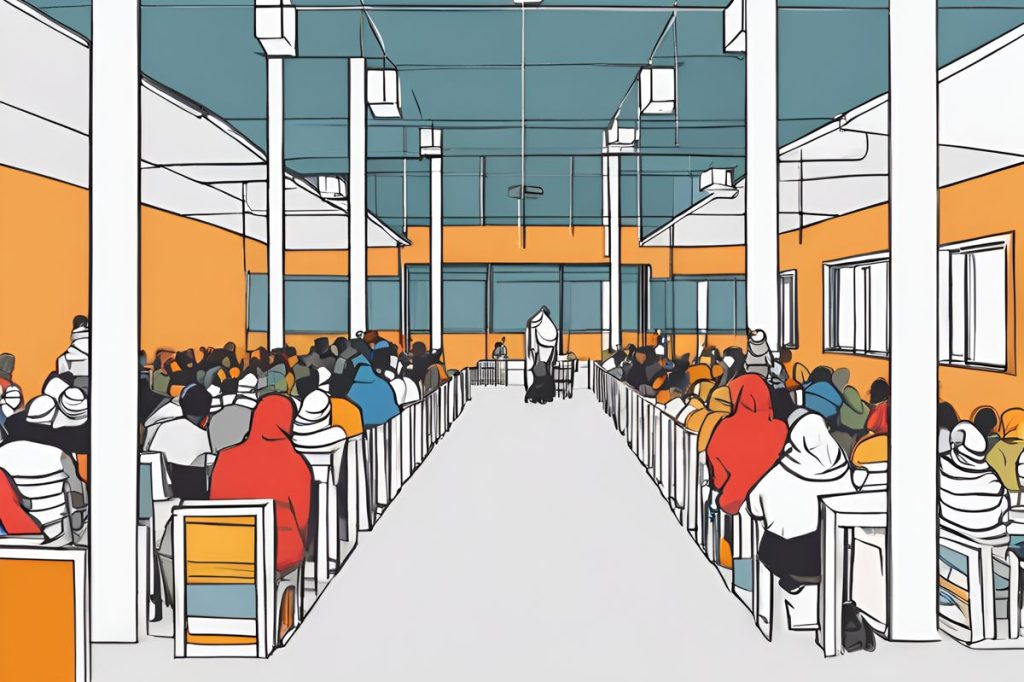In response to the influx of Syrian migrants, the Cypriot government has implemented strict measures including suspending automatic refugee status processing, increasing police surveillance, and cracking down on illegal employment. These actions aim to control migration flows, tighten employment restrictions, and streamline the asylum process, while also considering the reclassification of safe zones in Syria and advocating for the repatriation of certain individuals.
What measures has the Cypriot government taken to manage Syrian migrant influx?
- Suspended automatic refugee status processing for Syrians
- Increased police surveillance and crackdown on illegal employment
- Considering international reclassification of Syria’s safe zones
- Introduced mandatory residence in migrant reception centers
- Delayed asylum applications to EU’s maximum limit of 21 months
- Tightened rules against employers hiring undocumented Syrians
- Advocated repatriation for Syrians who visited home recently
Government Measures
In the face of growing concerns, the Cypriot government has taken decisive action to suspend the automatic processing of refugee status for Syrian migrants. This decision comes amid discussions on additional local actions, including the enhancement of police surveillance of Syrian arrivals who decline state housing offers, and a rigorous crackdown on the illegal employment of these individuals. Law enforcement agencies are expected to play a key role in implementing these measures.
The government is also considering the international reclassification of parts of Syria as safe zones, alongside stronger containment of sea departures, particularly from Lebanon. This is part of a broader “plan B”, aimed at reducing the appeal of Cyprus as a destination and thereby controlling the influx of migrants.
Asylum Process and Employment
In a significant policy shift, Syrian migrants will now be required to reside in one of the designated migrant reception centers. The permanent secretary of the interior ministry, Loizos Hadjivasiliou, announced the cessation of financial stipends and a delay in the examination of asylum applications, which will not be processed until the EU’s maximum time limit of 21 months is reached. With an existing backlog of 10,000 cases, the new arrivals are now facing a prolonged wait for their claims to be addressed.
The Kophinou reception center is set to provide the initial accommodations, and once at capacity, the Pournara migrant reception center will serve as an overflow facility. These actions are in line with Cyprus’s international legal obligations to provide shelter and basic necessities to asylum seekers.
Employment Restrictions and Repatriation
The Cypriot authorities are also tightening the noose on illegal employment. Employers found hiring undocumented Syrian workers risk having their licenses to employ third-country nationals revoked. This two-pronged approach aims to deter businesses from employing Syrians and to signal to potential migrants that job opportunities in Cyprus are scarce.
Interior Minister Konstantinos Ioannou has stated that individuals who have traveled back to Syria, particularly through the north within the last year, will face immediate revocation of their refugee status or outright rejection of their applications. These individuals will also lose any rights associated with the temporary protection regime, and the government will pursue their repatriation through voluntary returns or deportation when feasible.
Migration Trends and Infrastructure Developments
Cyprus has witnessed a noticeable increase in irregular migration, with 3,703 arrivals in 2024, surpassing the previous year’s total. This uptick has been met with an almost proportionate rise in repatriations, thanks to stronger collaborations with Frontex and incentives for voluntary returns.
In anticipation of future needs, the Cypriot government is constructing a pre-departure center in Menoyia, Larnaca. This facility, with an approximate capacity to accommodate 800 individuals, is expected to streamline the processes of detaining and deporting migrants with rejected applications, further reinforcing Cyprus’s commitment to managing its borders and migration flows effectively.
How is the Cypriot government managing the influx of Syrian migrants?
The Cypriot government has suspended automatic refugee status processing, increased police surveillance, cracked down on illegal employment, and is considering reclassifying safe zones in Syria. They have also introduced mandatory residence in migrant reception centers and delayed asylum applications processing to the EU’s maximum limit of 21 months.
What measures are being taken to tighten employment restrictions for undocumented Syrians in Cyprus?
Employers found hiring undocumented Syrian workers risk having their licenses to employ third-country nationals revoked. This stricter enforcement aims to discourage businesses from hiring Syrians and signal to potential migrants that job opportunities in Cyprus are limited.
How is the Cypriot government addressing the issue of repatriation for certain Syrian migrants?
Individuals who have recently traveled back to Syria, especially through the north within the last year, face immediate revocation of their refugee status or rejection of their applications. The government is pursuing repatriation through voluntary returns or deportation when feasible.
What infrastructure developments are being made in Cyprus to manage migration flows?
Cyprus is constructing a pre-departure center in Menoyia, Larnaca, with a capacity to accommodate approximately 800 individuals. This facility will streamline the processes of detaining and deporting migrants with rejected applications, demonstrating Cyprus’s commitment to effectively managing its borders and migration flows.

